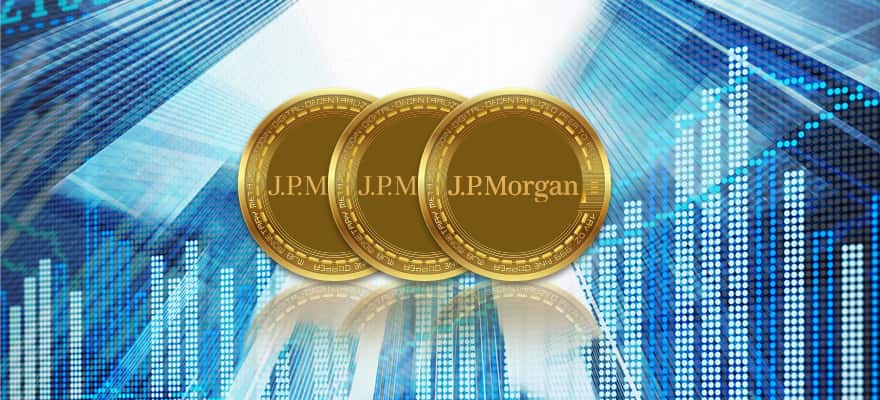JPMorgan is set to make a big splash in the digital finance space with its new blockchain-based deposit token. The token, awaiting U.S. regulators’ approval, will enable faster and cheaper cross-border transactions among banks and other entities.

JPMorgan will back the new token with U.S. dollars and issue it on a blockchain platform.
The new token will enable transactions with other financial institutions, unlike JPM Coin, which only works for internal transfers within the bank. The new token will also facilitate settlements involving tokenized securities.
The token will also adhere to strict compliance standards, such as customer verification and anti-fraud measures. This will ensure that the token is safe and reliable for both users and regulators.
JPMorgan’s New Token to Enhance Cross-Border Transactions
The launch of JPMorgan’s blockchain-based deposit token is a significant milestone for the financial industry, as it shows that traditional banks are embracing the potential of blockchain technology.
By using a blockchain-based token, JPMorgan can reduce the costs and risks associated with cross-border payments, as well as improve the speed and efficiency of transactions.
The token also represents a challenge to existing payment systems, such as Ripple’s XRP, which have been facing regulatory hurdles in the U.S.
Some analysts believe that JPMorgan’s token may have an advantage over XRP, as it is backed by a reputable bank and has a clear regulatory framework.
Bitcoin Price Surges
Developments in the banking sector affect the Bitcoin price, as they show how much the digital finance space adopts and innovates.
On March 19, 2023, Bitcoin surged from $27,000 to over $28,000 after a scandal involving Credit Suisse, a major Swiss bank.
JPMorgan’s blockchain-based deposit token may have a similar impact on Bitcoin, as it signals that banks are becoming more open to using blockchain technology for their operations.
This may increase the demand and legitimacy of Bitcoin, as well as other cryptocurrencies, as alternative forms of money in the global economy.
